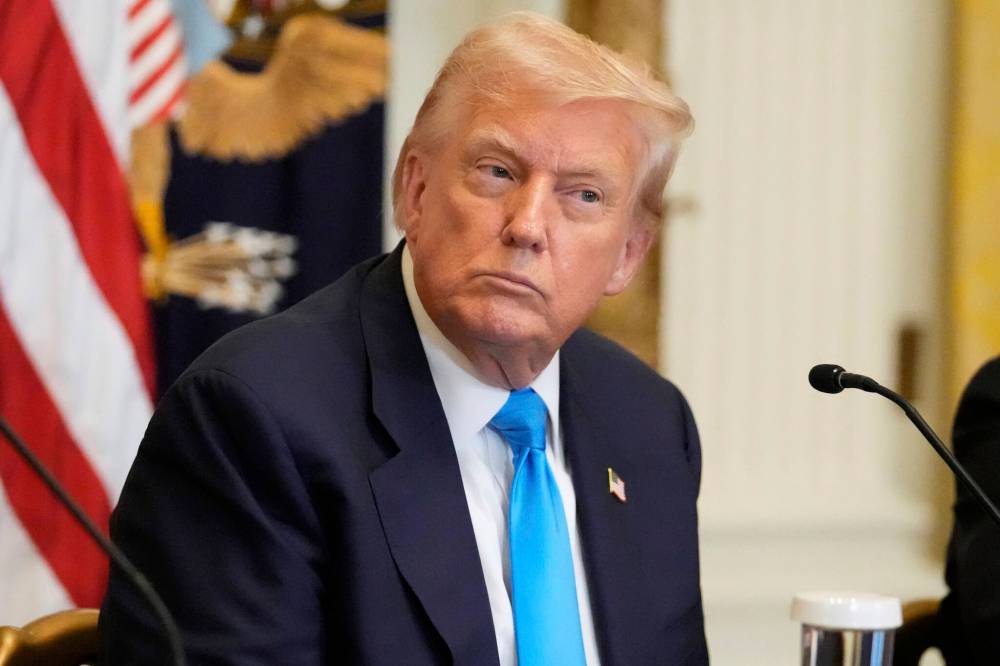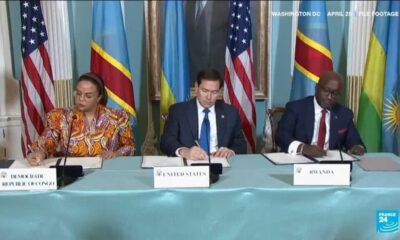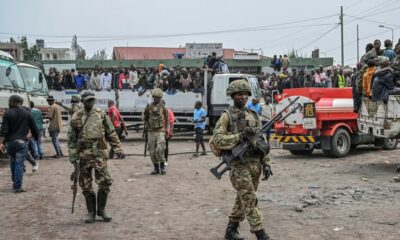Politics
Trump Plans Increased Federal Control in D.C. Amid Crime Decline

U.S. President Donald Trump announced plans to send the National Guard to Washington, D.C., claiming the move aims to improve safety in the city. This decision has raised concerns among observers who fear that such militarized actions reflect a trend towards authoritarianism. On social media, Trump declared that the streets of D.C. would be “LIBERATED today!” drawing sharp criticism for framing the deployment of armed forces in terms of liberation.
The decision to deploy the National Guard comes despite data showing that violent crime in D.C. has decreased by 26 percent year-to-date. Critics argue that Trump’s approach to safety appears to target the homeless population rather than addressing actual crime issues. His rhetoric suggests a broader agenda of removing individuals deemed undesirable from public spaces, further fueling fears of an increasingly authoritarian stance.
Trump has expressed intentions to extend similar measures to other cities, including Los Angeles and New York, if he perceives a lack of self-regulation in those areas. This raises questions about the implications of federal control over local law enforcement and the potential impact on civil liberties.
In his justification, Trump claimed that the deployment of the National Guard would “end the days of ruthlessly killing or hurting innocent people.” However, this assertion contrasts sharply with ongoing controversies surrounding the actions of Immigration and Customs Enforcement (ICE). Reports indicate that in 2025, 13 migrants died in ICE custody, highlighting significant concerns over the treatment of individuals under federal authority.
A report from the Cato Institute revealed that one in five ICE arrests involves individuals with no prior criminal history or removal orders. This statistic underscores the growing fear that Trump’s administration may be prioritizing control over community welfare, leading to a cycle of fear and repression rather than safety.
The visual of federal troops entering American cities under the guise of liberation is deeply unsettling. Such actions could set a dangerous precedent, signaling a willingness to use military force against civilians under the pretext of public safety. This rhetoric and approach to governance evoke historical parallels that many find troubling.
It is essential for lawmakers in the United States and leaders worldwide, including those in Canada, to recognize the potential risks associated with Trump’s actions. The tendency to dismiss his threats as mere bluster could lead to overlooking serious implications for democracy and civil rights.
As the political landscape continues to evolve, the implications of Trump’s plans warrant serious consideration. Many observers argue that it is time to take the actions and statements of the Trump administration seriously, rather than underestimating the potential consequences of his approach to governance.
-

 Politics4 weeks ago
Politics4 weeks agoSecwepemc First Nation Seeks Aboriginal Title Over Kamloops Area
-

 World5 months ago
World5 months agoScientists Unearth Ancient Antarctic Ice to Unlock Climate Secrets
-

 Entertainment5 months ago
Entertainment5 months agoTrump and McCormick to Announce $70 Billion Energy Investments
-

 Science5 months ago
Science5 months agoFour Astronauts Return to Earth After International Space Station Mission
-

 Lifestyle5 months ago
Lifestyle5 months agoTransLink Launches Food Truck Program to Boost Revenue in Vancouver
-

 Technology3 months ago
Technology3 months agoApple Notes Enhances Functionality with Markdown Support in macOS 26
-

 Lifestyle3 months ago
Lifestyle3 months agoManitoba’s Burger Champion Shines Again Amid Dining Innovations
-

 Top Stories2 months ago
Top Stories2 months agoUrgent Update: Fatal Crash on Highway 99 Claims Life of Pitt Meadows Man
-

 Politics4 months ago
Politics4 months agoUkrainian Tennis Star Elina Svitolina Faces Death Threats Online
-

 Sports5 months ago
Sports5 months agoSearch Underway for Missing Hunter Amid Hokkaido Bear Emergency
-

 Politics5 months ago
Politics5 months agoCarney Engages First Nations Leaders at Development Law Summit
-

 Technology5 months ago
Technology5 months agoFrosthaven Launches Early Access on July 31, 2025





















